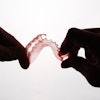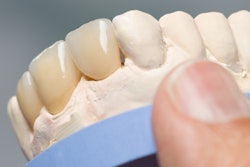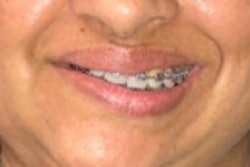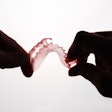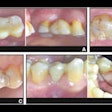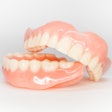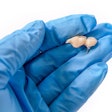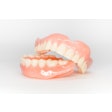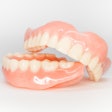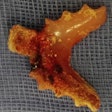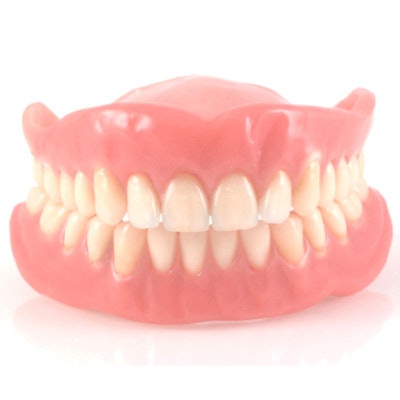
Complete dentures manufactured with digital techniques have better outcomes than those manufactured with traditional workflows, according to a systematic review published on July 29 in the Journal of Prosthetic Dentistry.
Dentures created with CAD/CAM technology had better retention and tissue surface adaptation. What's more, digitally created dentures cost less time and money to produce and left patients more satisfied with the outcome.
"The assessment of CAD-CAM planning and manufacturing through clinical studies is ongoing. However, preliminary results indicate better clinical performance and lower overall costs of digital complete dentures than conventional dentures," wrote the authors, led by Dr. Ana Paula Chappuis Chocano, a doctoral student in the department of periodontics and prosthodontics at the University of São Paulo in Brazil.
The authors searched for studies published through March 16, 2020, in the International Prospective Register of Systematic Reviews database. They limited their search to studies published in English that compared outcomes of complete dentures made with CAD/CAM technology and conventional techniques.
Six studies met their inclusion criteria. The authors initially thought they would find no differences in the outcomes between the types of denture manufacturing, but the findings proved them wrong.
"The qualitative synthesis results demonstrate that [complete dentures] manufactured with CAD-CAM technology provide better retention than conventionally manufactured [complete dentures]," the authors wrote.
The two studies that assessed retention found digitally manufactured dentures had better retention than conventional dentures with or without denture adhesive. In fact, the addition of adhesive actually reduced the retention of CAD/CAM dentures.
"This reduction may be attributed to the better adaptation and intimate contact of the milled [complete dentures] on the maxillary tissues, which does not allow an adequate settlement of the adhesive," the authors wrote.
Furthermore, one of the analyzed studies reported on tissue surface adaptation and found digitally manufactured dentures better adapted to tissue surfaces. The finding could be related to more precise procedure standardization and reduced polymerization shrinking with CAD/CAM manufacturing, the authors noted.
Digitally manufactured dentures also required less time in the clinic and had a lower cost to produce. The time saved with using a CAD/CAM fabrication technique ranged from 171 minutes to 223 minutes depending on the analysis.
If that wasn't enough, patients with CAD/CAM dentures reported significantly better experience and satisfaction. Digitally produced dentures rated higher for comfort, chewing, and efficiency.
The new review was limited by a small number of studies and a lack of participant randomization, the authors cautioned. They called on future studies to standardize treatment protocols and to compare different CAD/CAM techniques.
"Clinical studies addressing longer follow-up periods are necessary to compare differences among techniques," they concluded. "However, cost and clinical time outcomes that demand [complete denture] manufacturing with both techniques are already achievable."

